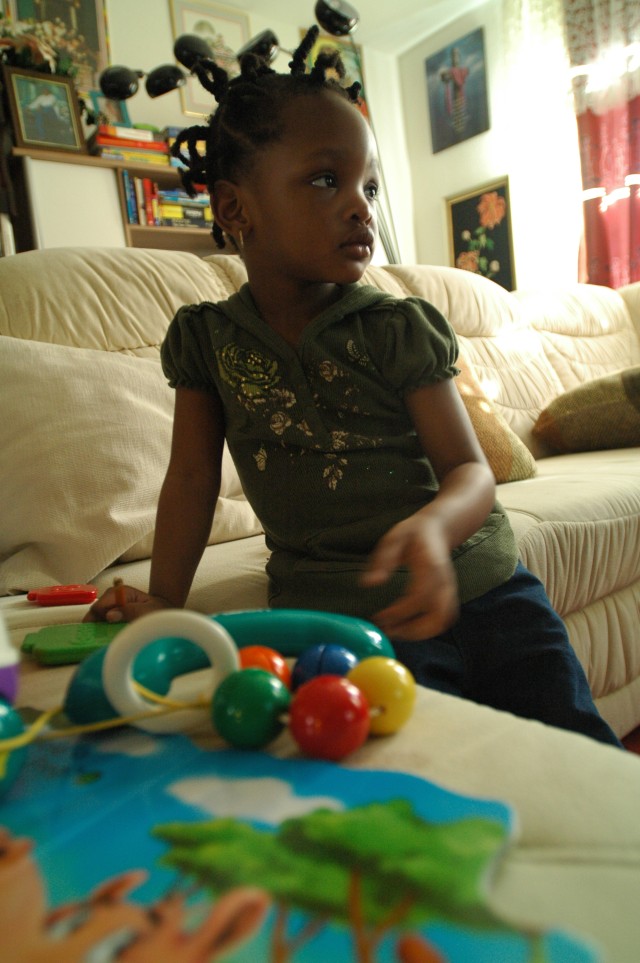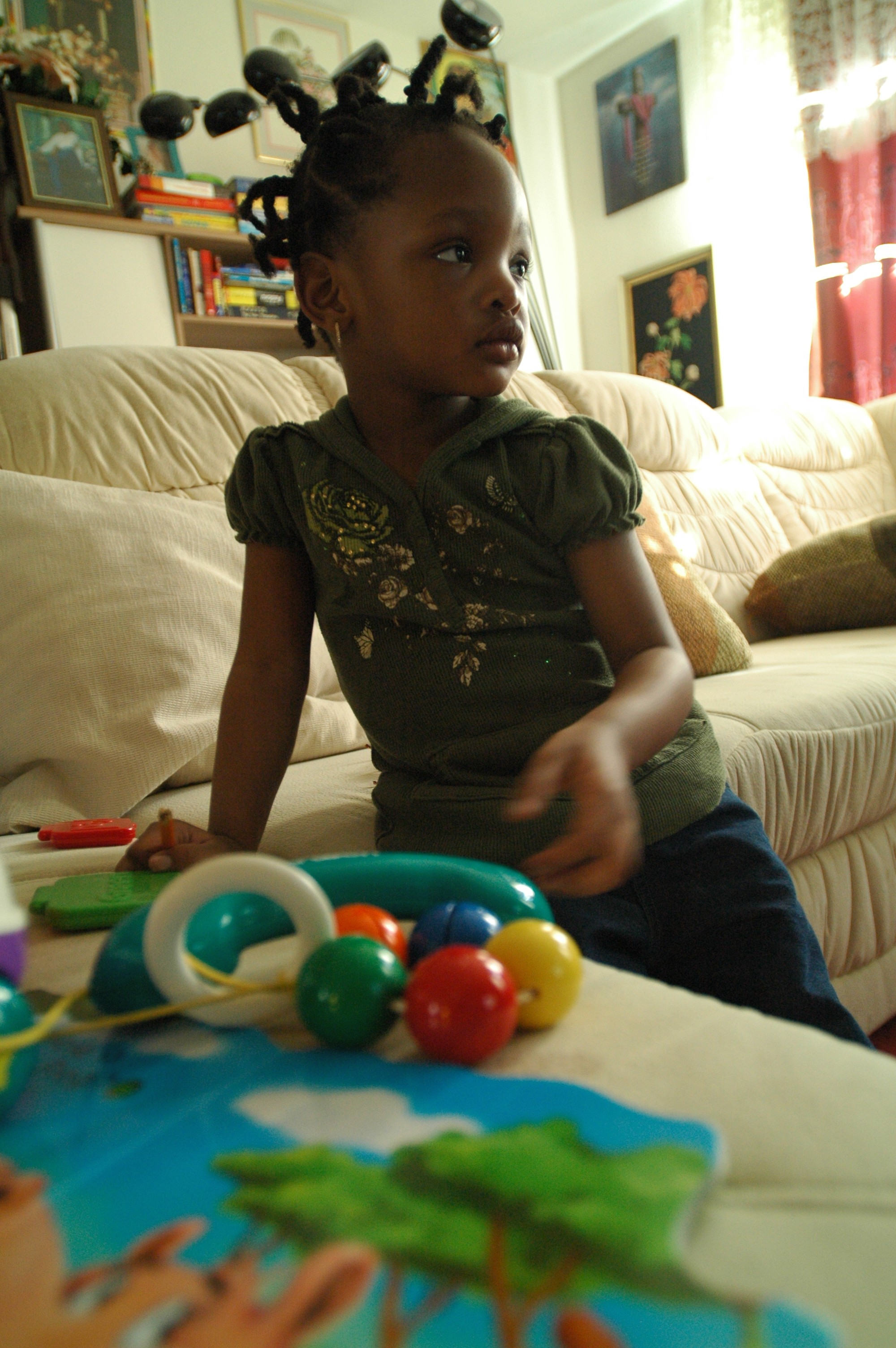HEIDELBERG, Germany -- When you look at Susie Dzreke, you see a nearly 3-year-old girl, who probably tops out her growth chart.
But if you spend any time with her, you'll notice she doesn't make eye contact or speak, she moves almost constantly - mostly spinning - and she likes things a specific way - her books must be open and her colored blocks must form a line.
Susie has autism, a complex neurological disorder that affects one in 150 people throughout their lifetime. It crosses racial and social boundaries but is four times more prevalent in boys.
When Susie's mom, Betty Dzreke, took Susie to her two-year, well-child appointment, her pediatrician told Dzreke that it wasn't normal for a 2-year-old not to speak, or at least say "mama" and "dada."
"(Language delays) are often the first flag that parents and/or doctors pick up on that leads them to us," said Julie Brannon, occupational therapist, Educational and Developmental Intervention Services for the Heidelberg and Mannheim communities. She went on to say that parents often know something is different about their child.
"They know their kids best, but aren't ready on their own to ask the question that might lead (to seek help)," Brannon said.
For Susie, whose father is deployed to Iraq with the 18th Engineer Brigade, the path to diagnosis meant a trip with her mom and an EDIS staff member to Landstuhl Regional Medical Center, where they met with a developmental pediatrician and a psychologist.
There the psychologist performed a standardized test for autism detection that Betty said looked like play time for Susie.
But what the doctor looked for with the Modified Checklist for Autism in Toddlers, or M-CHAT, were clear indicators that Susie's behaviors fell into the spectrum of autism.
Autism is just one of several other similar neurological disorders, which are as a group called autism spectrum disorders, according to Autism Speaks, a non-profit organization dedicated to autism awareness.
Three main indicators that doctors and therapists look for when working with children suspected of autism are delayed or disordered communication, both verbal and non-verbal; restricted or repetitive behaviors; and lack of social interaction.
Susie, from her lack of speech and eye contact to her open books, fits the profile of an autistic child. Another trait: "She doesn't like to play with a big group ... she just wants to be alone," Dzreke said.
Once a child has been identified as having developmental delays, whether autism or some other disorder or delay, the EDIS staff develops, in concert with the child's parents, an Individualized Family Service Plan, which determines what kind and the frequency of services the child will receive.
The various therapists at EDIS then provide in-home therapy sessions, where they not only work with the children but also teach the parents to incorporate therapeutic activities into their normal routine.
Dzreke said EDIS staff members visit her house twice each week and have taught her a lot. "They taught me how to handle her, to let her move around and do her own thing," she said.
The biggest concern for Dzreke is whether Susie will talk. However, she has become friends with another family with an autistic daughter who at age 3 is talking, which gives Dzreke hope.
EDIS services are available for children from birth to age 3, when they can enter developmental preschool in the local Department of Defense Education Activity school.
The most common delays seen in the Heidelberg and Mannheim communities are common speech and motor delays, according to Carol Schrimp, EDIS program manager. The rate of autistic children in the two communities is on par with the national average, she said.
Parents are encouraged to learn developmental milestones to ensure their child is developing within a normal range.
"All children develop differently, and we know that and we say that," Schrimp said.
To help identify children who are not developing normally, the health clinics in the Heidelberg and Mannheim communities require parents to fill out "ages and stages" questionnaires at every well-baby and well-child appointment.
They also host various events throughout the year to try to identify children who need assistance. Twice a year they offer Happy Hours, where they provide information to parents at child development centers during pickup times. They also host twice a year Milestones and More, where they offer basic screenings for anyone in the community.
In addition, information is available at the various community fairs and festivals throughout the year. EDIS also accept walk-ins and referrals from pediatricians and works closely with the Exceptional Family Member Program.
Regardless of how a child is referred to EDIS, what matters is that the child and his family get the help they need.
"EDIS has helped me a lot," Dzreke said.
(Editor's Note: Jason L. Austin works in the USAG Baden-Wuerttemberg Public Affairs Office)


Social Sharing